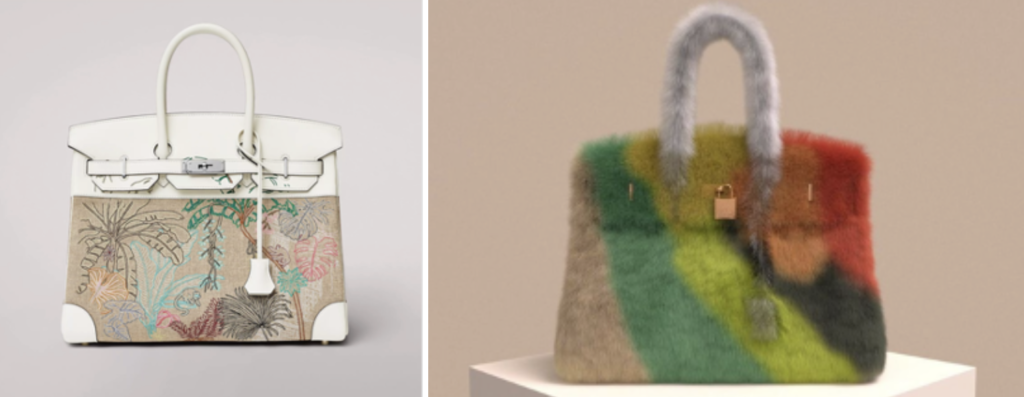As we enter the last quarter of 2022, the legal industry is taking note of cases to watch for in 2023. And this year, many within and even outside of the legal profession are keeping a close watch on three cases in which the world of trademarks is expected to collide with non-fungible tokens (NFTs).
Generally, an NFT is a form of financial security consisting of digital data stored in a blockchain and refers to a digital file such as photos, videos, and/or audio. NFTs can be created by anyone, and do not require much, if any, coding skills to create.
In all three cases, NFTs include digital images, which the plaintiffs claim are being used to misrepresent the source of the digital image, thus constituting trademark infringement. In the first two cases, the defendants claim the NFTs are nothing more than artistic expressions, whereas in the third case the defendant claims to be employing the NFT to prove ownership of the actual product provided in the digital image in the NFT.
It Is a Statement of Your Work
Yuga Lab is the creator of a digital art collection titled “Bored Ape Yacht Club,” which includes approximately 10,000 profile pictures, each portraying a bored ape wearing different costumes and accessories. Yuga Lab is suing Ryder Ripps of trademark infringement by selling the same product (i.e., the digital image/art) on the same NFT platform as Yuga Labs.

Just an Image
In the world of high-end designer handbags, Hermès, the maker of the iconic bag known as “Birkin,” is suing designer Mason Rothschild for producing and selling NFTs called “MetaBirkins.”

Each MetaBirkin is a digital image of a Birkin handbag depicted as if made of fur.
In its complaint, Hermès claims that Rothschild uses the “MetaBirkins” mark in commerce to brand a product line, and to attract public attention and signify source. Hermès further alleges that the MetaBirkin NFTs infringe and dilute Hermès’ Birkin trademark and falsely designate the origin of the NFTs as if they were Hermès-authorized digital products. (See Case No. 22-cv-384 (JSR), Dkt. 24 (S.D.N.Y. Jan 14, 2022.)
Rothschild is not selling a physical or virtual wearable fur bag similar to a Birkin bag but instead is creating and selling a digital image. Thus, Rothschild argues that he is using “MetaBirkins” as the title of artwork for the digital images of the fur-covered Birkin bags and not a source identifier of an actual/digital Birkin bag.
As a sidenote, the MetaBirkin collection generated approximately $800K in trade on OpenSea, a NFT marketplace. But since this lawsuit, the value of the MetaBirkin collection has significantly dropped, which may suggest that customers of OpenSea appear to believe the source of the MetaBirkins was Hermès.
Not Just an Image-authenticate Ownership of the Product
Many of us know that sneakers are not just for the gym, and in fact, the resale industry of collectable sneakers is a multi-billion-dollar industry —approximately $10 billion. Logically, authentication by the owner of the shoes may be essential to reduce the risk of knockoffs, and in this last case, a resale business claims to use NFTs to do just that.
Earlier this year, Nike filed suit against StockX, accusing StockX of selling NFTs that display Nike’s sneaker designs without their permission and that the NFT collection only includes unauthorized images of Nike’s shoes. In their answer, StockX states that the NFTs are NOT digital sneakers but are tied to genuine Nike products being resold.
StockX is an online marketplace and clothing reseller, and its platform is used by consumers to “not only sell or acquire physical products for consumption, but also to trade these physical products for investment purposes.” StockX employs NFTs to track ownership and serve as a claim ticket for frequently traded physical products. According to StockX, the use of NFTs is completely lawful and does not violate any legitimate rights of Nike. Specifically, StockX claims its NFTs, and marketplace is protected by the first sale doctrine. The first sale doctrine is a defense that allows the purchaser of a product to resell the product without infringement liability, thereby allowing purchased products to be resold, borrowed, or disposed of. In addition, StockX claims that StockX’s use of images and names of genuine Nike products is tied to “Vault NFTs,” which constitutes nominative fair use.
NFTs can be employed to authenticate ownership, and in the multi-billion-dollar industry of resale, this case will raise meaningful questions about, among other things, the rights of the original trademark holder and the reseller.
